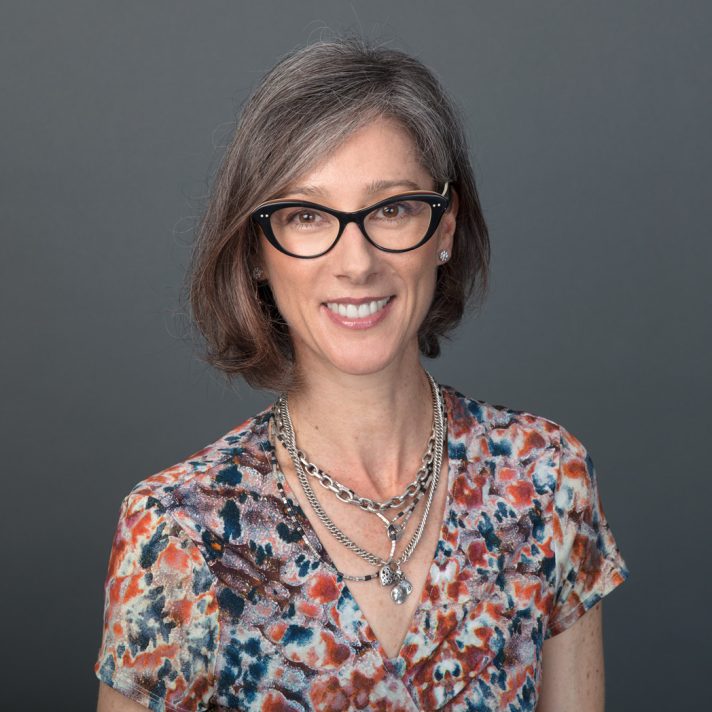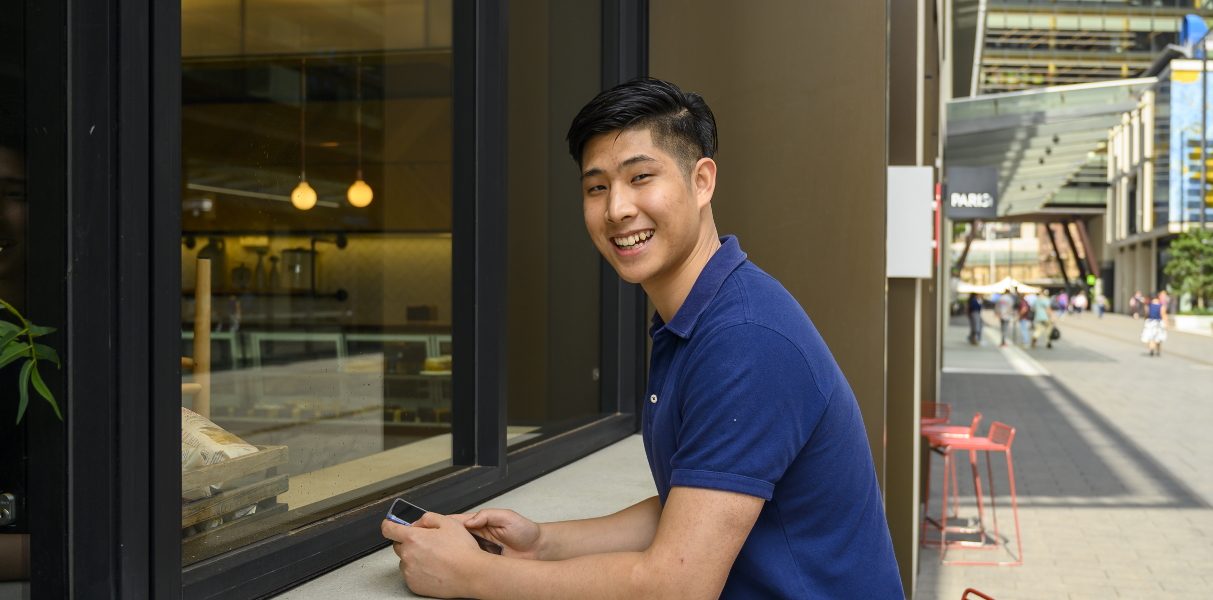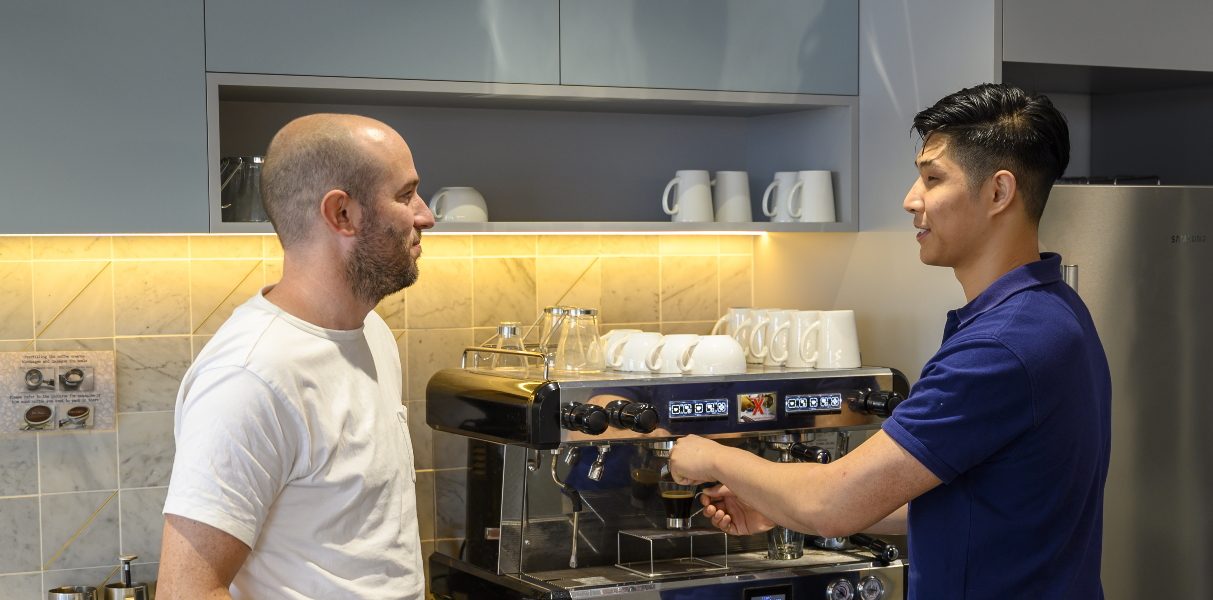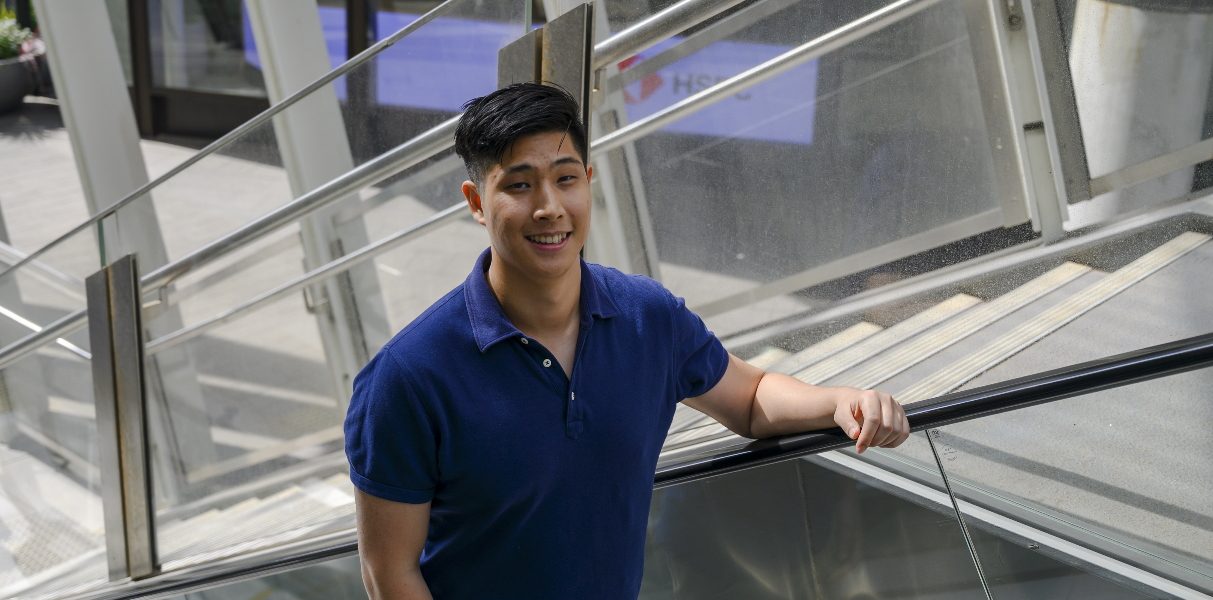Meet our grads
Jason Gu


Studied: Bachelor of Actuarial Studies, Bachelor of Commerce
Joined Taylor Fry: February 2019
Location: Sydney
Home team: Analytics

Jason's definitely answering a client email ...
How did you feel walking in the door on your first day?
Nervous! But also excited to meet the other grads and more junior staff, and hoping we’d get along. I’d heard there were lots of PhDs in the company, so my perception was that Taylor Fry was a place full of smart people. And it’s true! That was intimidating at first, but everyone’s so supportive and approachable, even up to senior principal level – and I’m glad I can work in a place with so many experts in their field.
Did anything surprise you?
I was surprised by how many people came from diverse backgrounds – like me with commerce –although these were mainly in quantitative areas such as physics and chemistry, so I guess that part was to be expected. I was encouraged and inspired that these people were pursuing an actuarial career. I didn’t feel so alone, because there were people who had gone before me.
What did you learn from our buddy system?
It was great to have a buddy to help with fitting in early on in those first few weeks – someone you could ask silly questions and not be judged for them, like how to fix the printer when you cause a paper jam.
It was quite different from having a mentor at uni, where everyone had fairly similar stories – they were the same age as me, with the same experiences, all studying actuarial degrees, and even from a select few schools.
My buddy Ian Hutton has a few more years of experience than me, he’s married and has kids, and he comes from a different career entirely – he was a musician previously. It was good to get to know him and his aspirations, why he decided to become an actuary and take on the role. The diversity was refreshing and he broadened my view considerably. He also taught me how to make good coffee!
“He also taught me how to make good coffee!”

Will Jason's coffee meet Ian's exacting standards?
Were you able to sample various teams?
Yes, my home team is analytics, but I found myself working more regularly with the general insurance team because I was placed where the resources were most needed at the time. I’m happy because I’m learning a lot and the work is quite diverse, from valuations for a multi-line insurer to workers compensation for a self-insurer – the liabilities for these are very different.
I’m looking forward to my rotation back to analytics at some point to experience the different workflow. It tends to be more high pressure, with ad hoc demands and sprints to complete tasks. I’d like to be exposed to that and take on the challenge! That way of working differs from valuations for general insurance, where the groundwork has been laid out in the past and it’s a continuing piece of work, with adjustments made according to issues the company faces.
I’m also interested in our social sector projects, where governments are looking for the most effective way to spend money to solve a problem. Our job is complex and there are a lot of factors to consider when deciding how to go about the analysis. You need a holistic view of the many influencing variables flowing in and out of that environment. If you try to fix something, you can expose another problem you may not have accounted for. The prospect of this challenge is incredibly interesting and exciting. Luckily, I’ll be able to sample all of these areas as part of our grad rotations.
How does the knowledge you’ve gained formally compare with your on-the-job learning?
At work, I learn to apply the more formal education. On-the-job learning is more naturally reinforced because you’re dealing with real-life situations that happen every day. It’s easier to take on knowledge when people around you explain and show you in a tangible, practical way. You get a sense of what’s important and what people care about, versus what’s nice to know.
I draw on certain parts of my formal university knowledge to help me complete a particular task or project – but it’s the accumulated knowledge from different jobs that helps me build on it and continue to learn.

Is this what you meant when you said climb the corporate ladder?
Is the consulting environment what you expected?
It’s more or less what I expected because I had completed my internship as a consultant with a large data science company, then had a part-time consulting role with a small software company. Taylor Fry seems to have the best features of those two different environments – the benefit of being recognised in the actuarial space as well as the agility of a smaller company, such as more autonomy and flexibility. My experience in both those roles was incredibly beneficial in preparing me for the demands and responsibilities of consulting at Taylor Fry.
What’s the Taylor Fry uni case challenge and how were you involved?
We were invited by The Actuarial Society of UNSW to host a case competition, where teams present their solutions to a hypothetical business problem. Alongside our parent company, Qantas, myself and fellow grad Thomas Zhou created a problem centered on a frequent flyer program, and later formed part of the panel judging the final four teams at an evening event at our Sydney office.
It was such an interesting exercise and much harder than I had anticipated. It was a lot of work for the two of us to come up with a question and all the supporting data that reflected Taylor Fry – who we are, our values and what we stand for as a company. We had some great input and guidance from senior people, who gave up their time to help with setting the direction, tips on education and advising on data, as well as assistance with the formatting, branding and wording of the final package.
We had more authority to drive the direction of the project than usual, so that was a very different experience for Thomas and me, and we felt the responsibility to achieve a good result. We really wanted to be proud of it.
We had more authority to drive the direction of the project than usual
I was pleasantly surprised by how it all turned out. It was a fun night. The students presented their question passionately and enthusiastically – they really threw themselves into it. And I was just so happy people actually wanted to answer our challenge and do it!
Looking back over the year, how have you changed?
I’ve become more organised, – I’ve had to! The commitment to full-time work means I plan and appreciate my free time much more, compared with being at uni, where I had two-day timetables. In between work and studying for Part 3s [the final step in becoming an actuarial fellow with the Actuaries Institute], I’ve taken a keen interest in overseas travel, as well as exploring more of Sydney and taking day trips. I’ve even taken up snowboarding!
Has the experience altered your perception of being an actuary?
My idea of being an actuary changed when I became aware of the need to consider consequences, that when you analyse data, the results you come up with can have a range of effects on business and people. You have to look quite deeply into a business problem and its environment in order to do that job well, and it’s a skill I still need to work on. But it’s also something that accumulates and develops over time.
How would you like to see your role evolve?
I want to continue gaining a broad range of experience, learning more and seeing how everything works – how modelling techniques are applied, and how different problems are solved with different approaches.
Analytics and the social sector particularly interest me because the work has the potential to have a profound impact on people and society. For instance, providing insight into society’s most vulnerable children and their families enables government to develop new policies and programs with the possibility to improve many people’s lives.
Analytics is a growing field, too. There’s lots of opportunity for people who can combine it in business, and actuaries fit well into this category. They can also complement their commercial sense with their social conscience, and I’d like to be part of that.
Want to know more about our program? Head over to our graduate program page.
Recent articles
Recent articles
More articles

Taylor Fry boosts climate expertise
Climate and financial risk specialist Dr Ramona Meyricke rejoins our ranks to lead our climate practice, as we focus on meaningful solutions
Read Article

LA wildfires – implications for the upcoming Australian reinsurance renewals
What are the flow-on effects of the January LA wildfires in Australia?
Read Article





